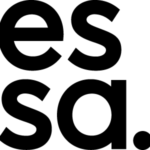We build on the Technical Specification CEN/TS 17699 “Guidelines for developing ICT Professional Curricula as scoped by EN 16234-1 (e-CF)” to design the next generation of educational profiles[1] for professional software roles.
In autumn 2021, ESSA presented a report which contributed to identifying critical software skills gaps for specific software role profiles, like Developers, DevOps experts, and others. Today, our experts are working on designing the right learning programmes to reconcile the market needs with the educational offerings. We are looking at the current demand for software skills but most importantly emerging needs so the educational and training offer can be adapted when it matters.
In a fast-changing sector, like the software industry, relevance and timeliness are paramount. Our work must be based on solid grounds that offer both reliability and flexibility to give any learning provider the chance to upgrade their offer and fill the skills gap.
From software roles to educational profiles
ESSA focuses on five main software-related roles: Developer, DevOps expert, Solution designer, Test specialist, and Technical (software) specialist. Of course, not all these roles are relevant to all EQF (European Qualification Framework) levels. Take a Test specialist, for example, this role has no associated educational profile on EQF level 7 (Master) and likewise, a DevOps expert has no associated profile on EQF level 4/5 (VET).
That said, it means that we are translating software-related roles (in their relevant EQF levels) into general educational profiles that are designed to boost skills that are sought after by market players (see table below).
The general educational profiles are the first step into the development of specific educational profiles focused on certain target groups, specific regional market needs, or educational institutions. Specific educational profiles could be the guiding star to developing an upskilling programme in DevOps for developers, a work-based full-time programme for students in software roles, or a reskilling programme for accountants to become developers for the FinTech industry…
Towards curricula, programmes, and training
Both the general and specific educational profiles are pieces of our puzzle. General educational profiles lead to general curricula in which general principles and methods like modularisation, build up in complexity, and integration of work-based components are described. And this guides the development of specific curricula that are based on specific educational profiles.
Keep in mind that these specific curricula will be developed for specific learning settings which take into account the specific needs of the learners — like a full-time student or full-time worker who will have very different needs for example. You can find in ESSA’s Software Skills Strategy (draft report) the full information on our approach.
In May, we will deliver both general and specific educational profiles for the roles of Developer, DevOps expert, Solution designer, Test specialist, and Technical (software) specialist. Later this year, we will design the curricula, programmes, and training that will boost the (re-/up-)skilling of individuals into high demand software roles across the EU.
Accreditation standards and a certification framework are also being developed to guarantee the comparability of the specific curricula. They are the foundation on which to build and deliver programmes and training that will fulfil the software market needs and are widely recognised across Europe.
- An educational profile can be viewed as the architecture of an educational curriculum. It is the translation of market needs into educational terms (learning outcomes, EQF level…). ↑

